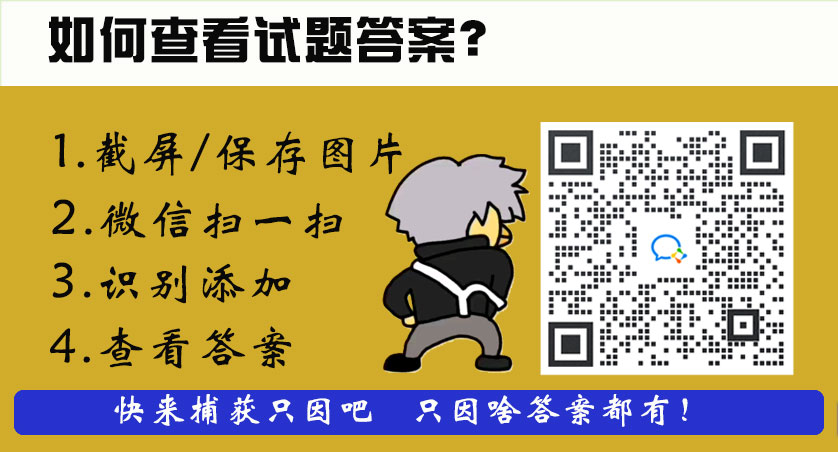新人教版高一英语周报34期答案,我们目前整理分享关于新人教版高一英语周报34期答案及其参考答案,2如需答案 请关注微信公众号:考不凡/直接访问www.kaobufan.com(考不凡)

1、新人教版高一英语周报34期答案
2、学英语报纸高一课标基础答案免费
3、2022-2023高二英语报纸30期答案
12.In order to know a foreign language thoroughly,four things are necessary.Firstly we must understand the language when we hear(61)itspoken.Secondly,we must be able to speak it ourselves correctly with confidence and without hesitation.(62)Thirdly,we must be able to read the language,and fourthly,we must be able to write it.We must be able to make sentences that are grammatically correct.
There is no easy way to success(63)inlanguage learning.(64)Agood memory is a great help,but it is not enough only(65)to memorize(memorize) rules from a grammar book.It is not much use learning by heart long lists of words and(66)theirmeanings,studying the dictionary and so on.We must learn by using the language.(67)Ifwe are satisfied with only a few rules we have memorized,we are not really learning the language."Learn through use"is a good piece of(6)8advice (advise) for those(69)who are studying a new language.Practice is important.We must practice speaking and (70)writing(write) the language whenever we can. 试题答案
分析 文章讲述了语言学习.听说读写是语言学习的基本点,此外,学语言只记语法规则是不够的,要学以致用.
解答 答案:61.it;考查代词.句意指代的是the language,要用it来指代.
62.Thirdly;考查序数词.前面出现了第一,第二,这里要用第三.
63.in;考查介词.句意表达的是在某方面,要用in来构成介词短语,在句中作地点状语.
64.A;考查冠词.句意表达的是泛指,要用不定冠词来构成.
65.to memorize;考查非谓语动词.句中it作形式主语,后面要用动词不定式作真正的主语.
66.their;考查代词.句意指代的是words,且作名词meanings的定语,表示所属关系,要用形容词性物主代词.
67.If;考查连词.句意表达的是条件,要用if来连接条件状语从句.
68.advice;考查名词.句中advise作介词of的宾语,要用名词形式;advice是抽象名词,用原形即可.
69.who;考查连词.句中are studying a new language修饰those,是一个定语从句;从句缺少主语,且先行词those指人,要用who来引导.
70.writing;考查动名词.practice doing sth练习做某事.
点评 语法填空题是考查学生的语言运用能力.解题时,要在理解文章的基础上,灵活运用语法知识,如词性,时态,名词单复数,连接词,代词,冠词等判断空白处应填写的内容.答完后,还要通读全文,核对所填单词形式是否正确,是否符合语境.
Researchers in the US say they might have discovered how to fight against and even reverse some processes of ageing, at least in mice. Injecting the blood of young mice into the older ones improved their brainpower, a study found. Scientists at Stanford University plan to carry out trials in people in the hope that new treatments for dementia(痴呆症) can be developed.
“There are factors present in blood from young mice that can recharge an old mouse’s brain so that it functions more like a younger one,”says Dr. Tony from Stanford University School of medicine. In the study published in Nature Medicine, mice aged 18 months were given injections of the blood taken from mice aged 3 months. The injected mice performed better on memory tests than mice of the same age that had not been given the blood. Dr. Tony said it was not known whether the same was true of humans, but a trial was planned.
A research center in UK said the treatment restored certain aspects of learning and memory in mice, but was of unknown importance to humans. The research, while very interesting, did not test the type of brain damage that was seen in dementia, which is not a necessary consequence of ageing.
Meanwhile, two similar studies by a separate team have thrown more light on how young blood may benefit the old, in mice at least. A substance in the blood of mice previously shown to have an anti-ageing effect on heart muscle also improved brain cells, according to a Harvard team. The research, published in Science, found the blood factors encouraged the growth of brain cells in old mice, and restored their sense of smell. The same chemical also improved muscle power of aged mice, the researchers found.
1. The underlined word in paragraph 1 probably means _________.
A. change B. destroy
C. speed D. increase
2. Scientists in the US will test the discovery in humans with the aim of __________.
A. proving the possibility to live longer.
B. showing the importance of scientific research.
C. publishing the study in Nature Medicine.
D. treating an age-related disease successfully.
3.According to the studies, the blood from young mice benefits the old in certain ways except in_________.
A. memory B. muscle power
C. fur color D. brain cells
4.What’s the author’s attitude to the anti-ageing studies?
A. supportive B. objective
C. negative D. doubtful